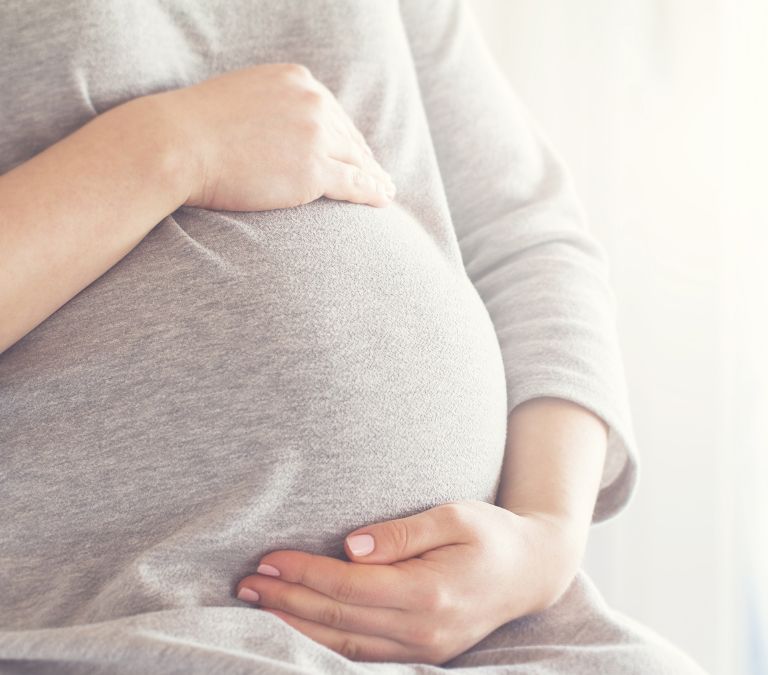Every day, new research and technology mock the obstacles that once made it so difficult for women to get pregnant.
Evidence of the laudable impact of technology and medical research on women’s chances to conceive children is rampant in testimonials of women who have been faced with seemingly hopeless situations in their bid to get pregnant.
One of such near hopeless instances is the issue of women getting pregnant after menopause or at older ages, such as from 40 and above. Today, that obstacle is history, and doctors and their female patients are hoping to break even more records in this regard.
As you approach the period of your life when you get into menopause, you may hear people talk about menopause as the stage of s woman’s life that signals the end of childbearing. However, you still wonder if there are chances of you conceiving and having children during or even after this stage of your life.
Knowing whether or not you can still get pregnant during or after menopause is very important for you to plan well and make better choices concerning birth control and decisions about how to do your family planning.
There is a need to understand the menopausal stage of your life because it is a period when your body changes drastically and permanently. As a result, it can get weird at times. For instance, you might experience hot flashes and fluctuations in the appearance of your periods. Still, these signs do not translate to infertility. It could, however, mean that your total fertility rate has greatly dropped.
Menopause is the phase of a woman’s reproductive life that she is believed to have reached once she has lived 12 months straight without any sign of her menstrual period. At this point, she is medically seen as postmenopausal. Some of the grave changes at this time include a major drop in your body’s hormone production.
This imbalance or shortage in the supply of necessary hormones affects the ability of the ovaries to produce eggs, which can spell the end of your ability to conceive and bear children.
Yet, menopause is not the end of childbearing. You can still get pregnant after menopause, but not naturally. Once you have gone 12 months with no menstruation and your ovaries quit producing eggs, you will have to explore other options besides having sex with your partner if you still want to have children.
Options available to you include assisted reproduction techniques such as in vitro fertilization, known as IVF.
There have been instances of women naturally getting pregnant after menopause, but this has been declared medically abnormal. The cases of it happening are infinitesimal.
Can You Get Pregnant During Perimenopause?
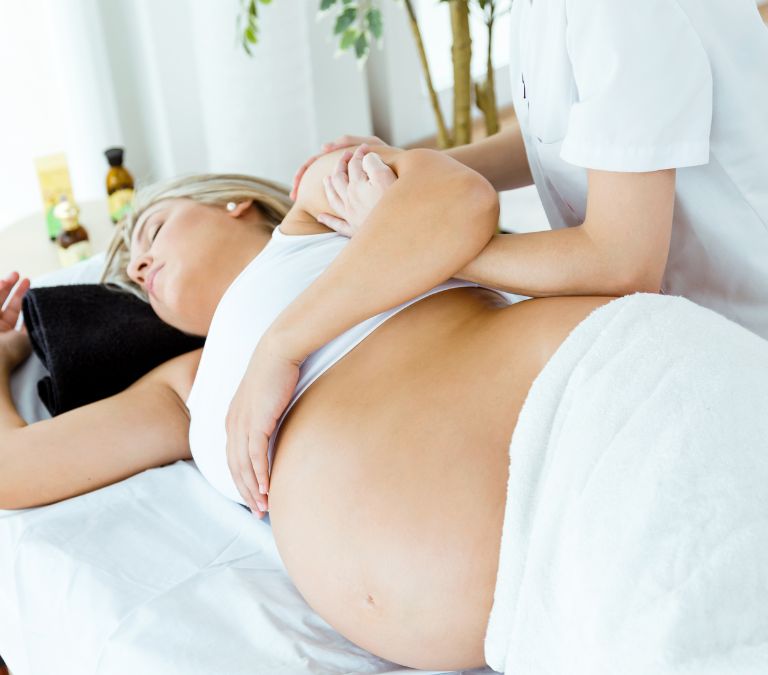
Unplanned pregnancies are possible during perimenopause. Despite the challenges such as low fertility rate and uncomfortable vasomotor symptoms that you may witness during this period, the chances are that you can get pregnant if you have sex at this time.
Pregnancy is possible in the years leading up to menopause. Here is why you can get pregnant during perimenopause. Unlike menopause, you may experience menstruation once in a while during perimenopause. It may not flow as often and may not be as severe as before, but you witness it still.
It can go on for months or even years, together with perimenopausal symptoms such as vaginal dryness and hot flashes, until you fully hit menopause.
If you do not want to get pregnant at this stage, you must be careful, especially if you are still sexually active.
Depending on your age, the level of precaution to take is different. For example, suppose you are yet to clock 50. In that case, you must use a good contraceptive until you have counted 24 months straight with no signs of menstruation.
The risk is much lower when you have reached or passed 50. After that, you only need to use contraceptives for the usual one year of no menstruation before you can mark yourself as naturally immune to pregnancy.
A lot of unexpected pregnancies happen at the age of 40 and above. Many women let their oars down at this age, thinking they are not likely to get pregnant anymore since they have reached that age.
Do not be caught unawares. If you are still sexually active even at 45, you must continue using contraception methods.
Pregnancies that occur at such ages are usually burdened with health risks and complications and the usual complications of pregnancy. In addition, children born to aged parents also tend to come down with many defects and abnormalities such as chromosomal disorders.
Can You Get Pregnant During Menopause?
Yes, you can get pregnant even when you can no longer see your periods—the chances of getting pregnant drop greatly as you get older and you become less fertile.
However, when you fully hit menopause proper, you bid goodbye to naturally making your babies. Instead, you can get pregnant through artificial methods.
If you are already in menopause, you have gone 12 consecutive months without experiencing any periods. However, you still want to have a child; it is possible though not naturally.
With assisted reproduction techniques like in vitro fertilization (IVF), you can carry your baby even when you have reached menopause.
When you get to menopause, you will experience an imbalance in hormone levels. Your body may be unable to produce enough quantities of vital reproductive hormones such as estrogen and progesterone.
This shortage or imbalance in hormone production means that certain reproductive functions and processes will either stop altogether or not be as effective as before. You may no longer witness such processes as ovulation, menstruation, and natural conception.
Getting pregnant naturally becomes nearly impossible except in very few instances where some menopausal women have gotten pregnant and given birth after they started experiencing abnormal vaginal bleeding even after menopause.
Artificial methods of getting pregnant are what you need if you are looking to get pregnant even when you have reached menopause. The medical procedure is known as in vitro fertilization (IVF) is the major means of artificially getting pregnant.
A lot of success has been recorded by both menopausal and premenopausal women in using in vitro fertilization (IVF) for getting pregnant and having a safe pregnancy term and delivery.
You can get an in vitro fertilization with your eggs, but this is impossible if you have already reached menopause when your ovaries are out of service. If, however, in anticipation of menopause, you got some of your eggs frozen in the past, you can use them now that you are in menopause.
If you do not have any frozen eggs, you cannot use your eggs as you have no eggs. You can get eggs from other women who donate eggs for in vitro fertilization (IVF) procedures. These eggs can either be fresh or frozen.
The important factor to look out for is the donor’s age and the eggs’ quality. A younger donor is most likely to have more quality eggs devoid of complications and abnormalities and stand the rigors of the process to give you a healthy baby.
Before In vitro fertilization (IVF) procedure is done on the menopausal woman, she will have to get hormone therapy to condition her body for the embryo that will be implanted into the uterus and prepare it to carry the baby till it is mature enough to be delivered.
Menopausal women may experience some complications with IVF-assisted pregnancies, unlike premenopausal women. Besides, it is not everyone that can undergo this medical procedure. That is why it is important to speak with your doctor about the risks and benefits of this procedure to determine if it is right for you, given your health history and that of your family.
Can You Get Pregnant During Postmenopause?
Postmenopause is the stage after menopause. It is marked by a complete loss of menstruation ability and a reduction in menopausal symptoms such as hot flashes and anxiety.
Women who have reached this stage of their reproductive life usually give up on the hopes of getting pregnant anymore. Most of them discontinue their contraception precautions even when they are still sexually active.
It is in the belief that there is no way they can ever get pregnant again, having gone 12 months straight without seeing their menstrual periods.
However, this may not be the same for all women. Some postmenopausal women have been reported to have unexpected periods even after reaching and passing menopause. The reasons for this are unknown, but such bleeding after menopause, with or without pain, can mean possible fertility. If you have unprotected sex during that period, you may get pregnant. It could also be a sign of some health problem.
It is very important to inform your medical practitioner about any development or changes in your body during and after menopause.
In Vitro Fertilization After Menopause
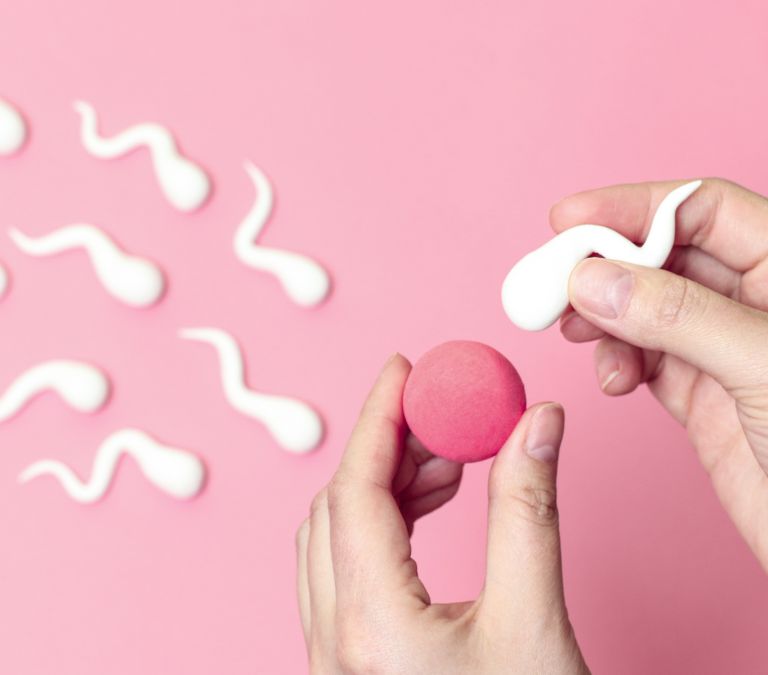
IVF is a method of assisted reproduction for women who are past menopause. This method of artificial fertilization has helped many women who have written off pregnancy due to the old age of menopause to get pregnant and have their children.
In vitro fertilization (IVF) involves fertilizing a woman’s eggs with a man’s sperm. However, this does not happen naturally in the woman’s body. It is done by a specialist outside the woman’s body, usually in a laboratory dish.
In vitro fertilization (IVF) procedure varies for different women, depending on their menopausal status.
If you are not yet menopausal, there are about five stages in the procedure. These stages include stimulation of the ovary to produce eggs, retrieval of the eggs to be fertilized from the woman’s body, implantation and fertilization of the eggs, then the culturing and finally transfer of the cultured embryo into the woman’s womb.
Women who have undergone menopause and thus cannot produce eggs will not have to undergo the first two steps of this procedure. One cannot stimulate them to produce eggs, let alone have eggs retrieved from their bodies. Usually, they will have to use eggs obtained from egg donors.
However, apart from the above, the IVF process is the same for all women. IVF pregnancy is fairly the same for both menopausal and premenopausal women.
As soon as the fertilized egg divides and turns into an embryo in the laboratory, the specialist will transfer it into the woman’s body, placing it in the womb.
The woman then carries the embryo as it develops from stage to stage and finally gets matured enough to be delivered.
A pregnancy from an IVF is not immune to the usual perils that beset pregnancies. However, there are usually no particular risks associated with getting pregnant via IVF except for the risks you may experience getting pregnant at old age.
However, this may not be so severe if you get a young donor’s egg. Most of the complications connected with pregnancy at old age are because of the poor quality of the egg. Thus, if you use quality eggs from a young donor, you may have no special worries.
Risks Associated With Getting Pregnant At Old Age
Certain complications besiege women who get pregnant at an old age. Still, you can manage these complications with adequate medical care.
Suppose you are contemplating getting pregnant after 40. In that case, it is pertinent that you understand the issues and risks connected to getting pregnant at this age and how to get the best healthcare to carry your pregnancy safely to full term and give birth.
You are not alone. Many other women have put off getting pregnant until much later in their adult lives for different reasons. However, by working closely with their doctors and following necessary medical advice and care, these women could fulfill their dream of having babies even when people thought it was impossible.
First, you must understand the attendant risks that old-age pregnancy forebodes. It is indisputable that old age happens to us all as long as we live up to that age. However, clocking 40 is not a magical occurrence.
Reaching this means you are at greater risk of complications or pregnancy difficulties. While difficulty in getting pregnant may be a little challenge to surmount because of the advancement in technology and healthcare, there are some risks you are posed with when you get pregnant at old age. Such risks include the following:
Multiple Pregnancies
One of the signs and symptoms of old age in women is the fluctuation and imbalance in the levels of vital hormones in the body. These changes in hormone levels can trigger a slight malfunction of the ovaries. As a result, the ovaries may release more eggs than normal. It can cause multiple conceptions and pregnancies.
Multiple pregnancies may not be a disadvantage to some women who like twins.
Risk of Developing Gestational Diabetes
It is a unique type of diabetes known to only happen to pregnant women, especially those who get pregnant at an old age. This condition can bring about having babies larger than normal, leading to severe injuries during childbirth. Dietary and physical efforts must be made to contain blood sugar levels to minimize the risk of gestational diabetes. There are also recommended medications for managing this condition.
High Blood Pressure
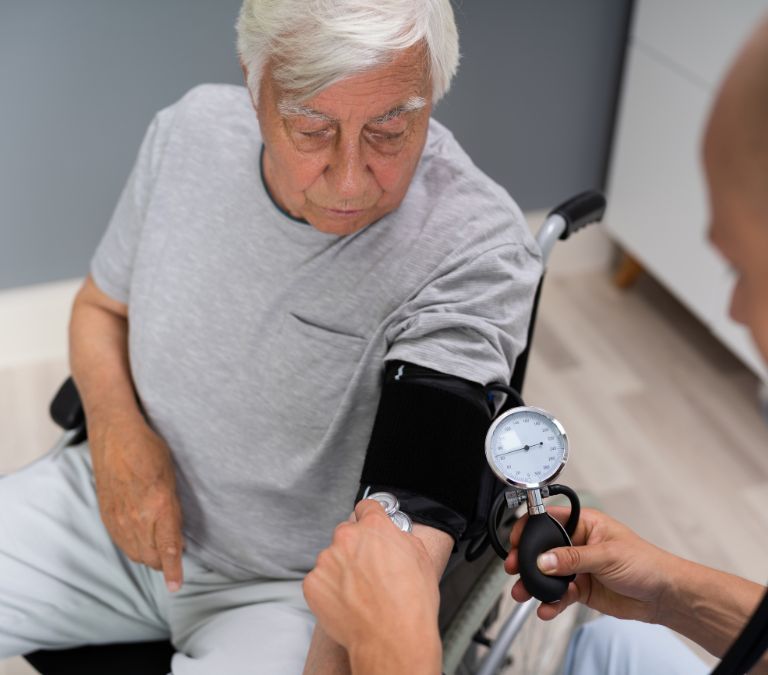
Older women are more likely to suffer high blood pressure if they get pregnant.
To manage this condition, you need to consult your doctor to keep tabs on your blood pressure and how your baby grows in the womb. It will mean more visits to your doctor. In addition, your doctor might require you to deliver prematurely to prevent possible complexities.
Premature Birth
To avoid the complications that are likely to arise at childbirth for women who get pregnant at an old age, doctors may decide to get the women to give birth before they carry their pregnancy to full term. Unfortunately, this also has its unfavorable effects. Babies born before full term suffer several medical issues.
You Might Need to Go Under the Knife
To circumvent the various complications that come with pregnancy at an old age, such as a case of the placenta covering up the opening of the uterus, your doctor may suggest a cesarean section over a natural birth.
Chromosomal Disorders
There is a higher chance of chromosomal disorders in children born to older women. Such chromosomal anomalies include Down syndrome.
Risk of Miscarriage and Stillbirth
There are greater chances of losing your pregnancy or giving birth to a dead baby if you get pregnant at an old age. It could be because of the attendant complications and medical anomalies, such as the low quality of the fertilized eggs.
After you have hit menopause, there are still chances of you being able to get pregnant and carry the pregnancy till the right time of delivery with the assistance of in vitro fertilization procedures and hormone therapies.
However, this is easier said than done. There are complications and side effects that you may experience if you want to get pregnant, even when you have reached menopause. To properly handle these, you must carry your doctor along the process for medical advice and monitoring.
Apart from in vitro fertilization (IVF), your chances of getting pregnant after 12 months of not seeing your period are bleak.
Your doctor will let you know that there are certain precautions you must take to manage the probable consequences of this decision if you decide to go ahead.
Be sure to take your prenatal tests and medical appointments seriously. It will help prevent or ease any possible complications that may arise later in the pregnancy. Inform your doctor of any development you notice, whether good or bad, to ensure that she is always abreast of you and your baby’s health status and progression and swoop in to find solutions to any complications.
Gaining a fairly good amount of weight can help manage the complications that plague women who get pregnant at menopause or old age. Find out from your doctor what amount of weight is right for you and your baby.
Exercise Regularly
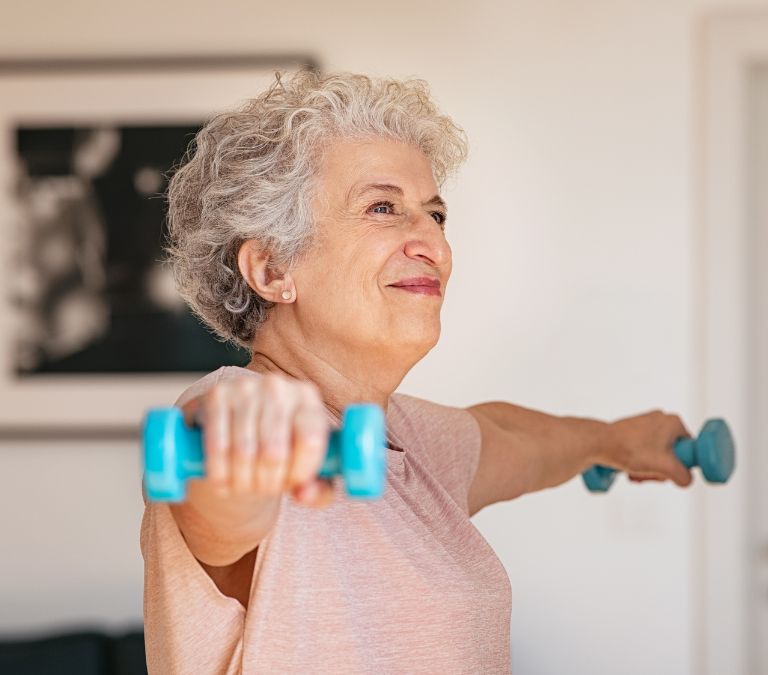
Frequent movement and workouts, however, light can go a long way in putting you at ease, getting you pumped up and ready for delivery day. The type of exercises you can do and how frequently you should do them are some of the issues you should trash with your medical doctor.
Refrain From Harmful Habits
Alcohol drinking, as well as tobacco or substance smoking, is normally detrimental to your health. These substances have an even worse impact on women who get pregnant after menopause or old age. Ensure that you let your doctor know of any subsisting medications you are on.
Conclusion
While it is not a proven fact, some studies point to the ages of men at conception as one of the possible reasons children may have health issues.
Pregnancy after menopause or old age can pose life-threatening risks for you, the mother, and your baby. Therefore, you must speak extensively with your doctor if you seriously consider having a baby in your old age.

